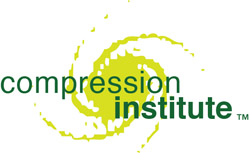 Aug. 25, 2011
Aug. 25, 2011
The Institute has been incorporated in Kentucky with the intent of qualifying as a 501(C)3 organization. We intend to abide by the spirit of B-Corporations, now legally recognized by five states as an entity legally dedicated to serving all stakeholders, not always the investors first. As a 501)C)3, that aspect is covered, but we will be encouraging companies to consider moves of this sort, so we want to experience the practicalities of whatever is being advocated.
Progress is slow, because we’re trying to “get it right.” We’d like the Institute to model the practices and behaviors presumed by Compression Thinking, so we’re learning to “eat our own dog food” on the premise that it’s best to acquire operational experience with anything advocated. The Institute is puny compared with our global challenges, but to be effective, we are stressing quality over quantity when starting up. Like everyone else, we’re short of time and beset by distractions.
The Institute’s mission is to create learning action groups to make Compression Thinking a common practice.
Of course, Compression Thinking is a leap into the unknown. Few people or companies have done anything like it. If you know of an exemplar case moving in this direction, we’d love to hear about it.
Most programs to promote environmental sustainability are either public policy activists or they take on faith that somehow we can substitute our way to continuing the economy much as we know it. We’re mostly operational people, not environmental experts, trying to address what to do about a pretty scary environmental future. We’re trying to keep it simple, if tough, and not make it more complicated than it has to be.
At first, Compression Thinking seems to be all gloom and doom, but if you follow global news, even scarier scenarios are pretty easy to concoct. We’re not pessimistic. If we wake up to our situation and take action, there’s reason to be optimistic.
If you are eager to join this adventure, e-mail Doc Hall: doc@compression.org.
